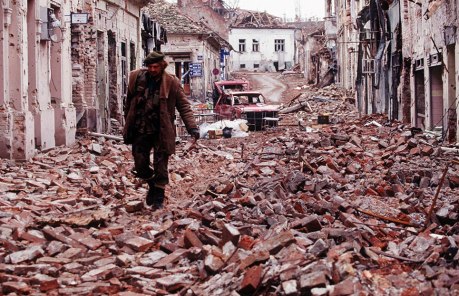
Recently this blog received a request from readers and bloggers for a post on what started the war in Croatia in the 1990’s, explaining that perhaps many ordinary Americans understand very little about it. As the subject is complex an article can hardly give it detail justice but it is hoped that this post (with links inserted for further references) will bring the knowledge of facts closer to those who wish to understand and know more. I am grateful to two readers of this blog who helped me a great deal to put this article together in order for it to be published as soon as possible. Ina Vukic.
________
To understand Croatia’s war in the 1990s, one needs to understand the historical background, as well as geopolitical interests of the international community, neighbours and international powers – and all of those interests before, during and after the war, as well as in the future.
Croatia was, and still is, the hottest piece of geographic real estate in Europe. Croatia is the gateway between north, south, east and west in Europe. Therefore, it is no surprise that two of the worlds’ largest empires expanded onto Croatian territory, namely the Austro-Hungarian (Hapsburg) Empire and the Ottoman Empire. Smaller powers also coveted Croatian territory, for instance, Serbia and Venice – and later the Italian state.
It must be noted that Croatia joined in union with Hungary first, in 1102, with its arrangement changing with Hungary’s union with Austria.
Croatia’s position within the Hapsburg Empire, which it joined in 1527 (later Austria Hungary), was one of continual de jure statehood and self-rule within empire and with Hungary, albeit with varying degrees of de facto statehood and self-rule shifting within the context of the Austrian-Hungarian power struggles, coupled with external pressure (the Ottomans).
Croatia was continually trying to not only reclaim historical territory, but also gain equal legal and political footing with both Austria and Hungary, joining either one or the other in internal political struggles; with either Austria or Hungary aligning with political actors within Croatia, to and include the Serb minority, whom the Austrians began settling in Croatia without Croatian consent beginning in 1533, who over the centuries were used as a political hammer against Croats by both the Austrians and Hungarians.
Croatia’s history is a long and complicated one.
However the war in the 1990s is traced directly to Croatia’s entry into both Yugoslavias.
The first Yugoslavia was the end objective outlined by the state of Serbia which entailed the domination of Croatia and Croats by Serbia, outlined in 1833 by Serbian Minister of the Interior Ilja Garasanin.
Croats in the first Yugoslavia were second class citizens in an occupied country. Serbian state sponsored violence and terrorism enforced nationalist Serbian policies, which were economically exploitive of Croatia.
This state terrorism culminated with the assassination of the pacifist Croatian politician Stjepan Radic, Croatian Peasant Party head, in Parliament while in session in 1928. The CPP had the overwhelming support of Croats inside and outside of Croatia proper before, during and after Radic’s death, through to WWII.
The Serbian “King” Aleksandar Karadjordjevic (who married United Kingdom of Great Britain and Ireland Queen Victoria’s great-granddaughter Princess Maria of Romania) declared a royal dictatorship in 1929 – a day later the Ustasha movement (UHRO) formed under Ante Pavelic, the Croatian Party of Rights leader who personally witnessed the state murder of Radic. The repression became worse, leading to over 30,000 political arrests of mostly Croats, and, the emigration of tens of thousands of Croats over the next decade.
With the rise of Adolf Hitler, Western powers were looking to keep Germany in check in the 1930s. They looked to the now renamed Kingdom of Yugoslavia to do so.
However the Croatian question was still festering. Despite Albert Einstein and Heinrich Mann’s denunciation of state-sponsored terrorism in Yugoslavia, the repression of Croats, and their open call for Croatian independence, no Western democracy called for any pressure against Belgrade for their imperialism.
A Croat-Serb detente was reached in the late 1930s, known as The Sporazum, and granted Croats’ territorial self-rule. Greater Serbian nationalists, who were not just the voting majority amongst Serbs, but the secret police and military heads, derided it. Their pathological hatred of the 1938 Agreement was the main factor for supporting the British sponsored anti-Axis coup in 1941 following the treaty between Yugoslavia and Germany.
With the German invasion, Serbian gendarmes and Yugoslav Army forces, as well as local Chetnik bandits (who were operating in Croatia since 1918) began massacring Croats and Muslims while fleeing the advancing Germans – the first massacre taking place in Bjelovar, before the Independent State of Croatia was even declared. It is in this context that the Italians, who had ambitions for Croatia’s coast, together with the Germans, put Ante Pavelic into power in May 1941.
Except for communist partisans, Croats welcomed the fall of Yugoslavia – they all had every reason to.
It must be noted that not a single Western agent or politician offered the Croats any statehood or recognition prior to, or during WWII.
With the massacres by the fleeing Serbian Gendarmes, the Yugoslav Army, and Chetnik bandits, as well as the ultra-nationalist and genocidal Chetnik movement openly carrying out the Homogeneous Serbia plan through mass murder and village torching, Croats were left with two choices in WWII: a) Join the Communist led Partisans and fight for a Communist Yugoslavia, which was the declared goal of the Partisans, which for many under direct Italian occupation and genocide was a live or die necessity or b) Join the Croatian Ustashe or Homeguard forces (regular army) and fight for a free (at least in terms of statehood) Croatia.
WWII was a very complicated, and for Croatia, impossible situation full of Faustian choices.
In the end, the Allies won WWII and the Communist Partisans took over Croatia and all the territory that was the first Yugoslav Kingdom. The Communist “liberation” saw hundreds of thousands of Croatians killed without trial, death marches, the imprisonment and internment of over 1.2 million Yugoslav citizens (the bulk of them Croatian), and one-party rule under the dictator Josip Broz Tito whom the Yugoslav state controlled media and Communist intelligentsia created a bizarre cult of personality worship for. Communist crimes are swept under the carpet while crimes perpetrated as part of the Holocaust saturated the history books, media, daily lives, courts …
In the second Yugoslavia, Croatia saw a continuation of the same cultural imperialism of the first Yugoslavia, and the concept of “Yugoslav” was the same as before, it was supra-nationalist code for Serbian. The 1954 Novi Sad Language Agreement standardized the use of Serbian under the red herring of Serbo-Croatian.
Yugoslavia was a failed economic model. The first reason was that the economy itself was propped up on foreign credit, thanks in part due to Tito’s rejection of Joseph Stalin, which gained him Western support as the Cold War was ongoing. The lavish credits from the West (and USSR, which also payed Tito to stay neutral) was poorly reinvested into the Yugoslav economy, which was run by unqualified Communists who were mostly given positions due to party membership, not technical knowledge of anything.
The second reason was that, by the 1980s, even the Communists estimated that the work force was 40 percent “ghost,” meaning non-productive.
The third reason is that basic infrastructure and long-term projects were rejected out of entirely political reasons, the Zagreb-Split highway for instance, a critical development project, was rejected for fears of Croatian economic development which could in turn mean more Croatian calls for autonomy, or more influence within Yugoslavia, if not help lead to independence, despite more tourist revenues meaning more money for the central government which was through various legal and illegal means, siphoning Croatia’s and Slovenia’s revenues disproportionately through higher tax rates and state-owned schemes.
This failed economic model was compounded by the failed political model, which led to the inevitable failure of the state.
The one-party system was backwards, as were its leaders. The political system Tito led mimicked that of the Austro-Hungarians before him – a carrot and stick approach playing various nations and or minorities off of each other to maintain a status quo of power.
The biggest disruption came with the Croatian Spring, which was brutally repressed. As a consolidation, the 1974 Constitution was passed, and it, on paper, met some of the Croats’ demands, namely of more autonomy, and it gave Vojvodina and Kosovo (within Serbia) autonomy as well.
Tito’s death in 1980 coincided with the decline of the USSR.
Yugoslavia was no longer important because the USSR was fading into oblivion. Credits were not being pumped into it, but were being called. This caused a domino effect within the painted rust that was the entirely mismanaged and gravely grafted Yugoslav economy which was now faced with paying off lavish loans with an economy that could not even theoretically meet even the most generous payment plans.
With Tito gone and inflation out of control, the Serbian Academy of Arts and Sciences (SANU) wrote, and the Serbian media published in 1986, the SANU Memorandum, which was a hysterical, victim-centred propaganda text that not only brought up nearly every single nationalist Serb myth, but also several Communist myths, demonising Croats, Slovenes and Albanians in particular, and more or less openly threatened all non-Serbs with a not-very-coded ‘surrender to our will or suffer the consequences’ message.
It was in this context of Serbian nationalist hysteria, fully flamed, supported and repeated by the Serbian Orthodox Church, Serbian media, Serbian Communists (inside Serbia and outside of it in neighbouring Croatia), and Serbian intelligentsia, that Slobodan Milosevic rose to power.
In a carefully scripted “spontaneous event,” Milosevic told a crowd of rioting Serbs attacking mixed Albanian and Serb Kosovar police in Pristina in 1987 “No one has the right to beat you…. No one will beat you ever.” He instantly became a star and the Serbian media lionized him as the saviour of Serbs.
Milosevic was an opportunist. He sought to centralize Yugoslavia and basically create a Serboslavia using legal and quasi-legal means.
Pressure was put on all of the other republics to meet Serbia’s demand for a unitarist state with no checks and balances and one-man, one-vote deciding who rules the centralised Yugoslav state.
Non-Serbs met this with political opposition.
So Milosevic and Serbia’s intelligence services organised “spontaneous gatherings of the people,” and “happenings of the people” where Serbs would be bussed in to ‘inform’ non-Serbs about the threats facing Serbdom in their Republics and towns (the current so-called ‘Bosniak Spring’ is following the same exact model, with the 14 year attempt to achieve centralisation through legal and quasi-legal means failing, they are turning to staged demonstrations under a false narrative following Milosevic’s playbook).
Between 1987 and 1990, he orchestrated the overthrow of the Montenegrin, Kosovar, and Vojvodina governments (with Kosovo and Vojvodina autonomy abolished in the 1990 Serbian Constitution) and installed people loyal to him – known as the ‘anti-bureaucratic revolution’ colloquially, and the overthrow of the Vojvodina government, the ‘Yogurt Revolution.’
The problem was that each of them had a vote in the collective Yugoslav presidency and by overthrowing and controlling each of those governments, he had half of the Yugoslav collective presidency in his pocket.
Beginning in 1988, Milosevic and Serbian intelligence, as well as senior Serbian General Staff officers in the Yugoslav People’s Army, were beginning to arm Croatian Serbs, and in 1989, followed suit in Bosnia and Herzegovina (B&H) with Bosnian Serbs.
The 1990’s wars in Croatia and B&H were pre-planned in Belgrade.
It must be noted that there was really little opposition to Milosevic’s rise in the West. Media in the West, in fact, praised him as a reformer due to his ‘anti-bureaucratic’ message.
While there was opposition to his racist, neo-apartheid policy in Kosovo by certain US Senators, there was no real action by the US or by the UN to punish Milosevic and Serbia in the late 1980s and early 1990s.
Milosevic’s media propaganda message was effective not just in Serbia, but also in the West.
Being that most foreign journalists were in Yugoslavia’s capital Belgrade, something that remained such for a good part of the 1990s, they were wined and dined by Milosevic’s government, bombarded with a sea of lies by pro-Milosevic journalists and academics and their circles, and fed misinformation by Serbian intelligence and counterintelligence planted releases and press releases.
So the media narrative in the west was not the facts-on-the-ground: out of control greater Serbian nationalism, the SANU Memorandum, Serbs’ under Milosevic trampling the 1974 Constitution, but rather Serbian media narratives – “Ustasha” revival, Croatia’s Franjo Tudjman is the new Ante Pavelic, Serbs are a “threatened people,” Croatia’s Constitution is “discriminatory,” etc.
A key part of Serbia’s propaganda was equating responsibility for what was, and remains, clearly a formal, state policy of Serbia of destabilising and waging genocidal aggression against its neighbours.
Western journalists and ambassadors would be reading and hearing in Belgrade about “Croatian and Serb nationalists at each other’s throats, Yugoslav People’s Army (JNA) has to separate the warring parties,” with no mention of those Serbian nationalists being organised and armed by the JNA almost two years before the first free elections in Croatia (1990), and ‘separating’ them to consolidate Serbian territorial gains – all reporting the contradictory Belgrade line as fact.
The reason is manifold. With the imminent fall of Communism, amongst many Western governments and intelligence agencies were WWII veterans – all had a subliminal fear of an eventually united Germany, and saw Yugoslavia as some sort of a bulwark against it (despite it being crushed by Germany, and the advance of the Soviet forces into Yugoslavia being the only reason the Partisans won WWII).
There was also the age old geopolitical factors that were combined with this, namely, traditional Russian, French, Dutch, US and especially UK support for Serbia and Yugoslavia whom they all saw Serbs as a guardians of.
Then there was the mythical fairy tale narrative that many opinion makers in left media and academia had about multi-ethnic Socialist Self-Managing Yugoslavia as if the economy was sustainable, and as if the government was not repressive and had not been engaging in spying and murdering its own citizens at home and abroad for 45 years.
Finally, there were personal interests involved, namely, that of Yugoslav Ambassador Lawrence Eagleburger and his colleague in the Bush Sr. administration, Brent Scowcroft, who were as the Washington Post reported in autumn of 1991, in a blatant conflict of interest with their personal business relationships with Crvena Zastava Arms, which was also illegally selling and shipping arms to Muammar Gadaffi’s Libya which was under a UN arms embargo.
This is something that the late and extremely great Dr. Jerry Blaskovich wrote extensively about in his book.
So it is no wonder that the policies of the US were that of equidistance when the ambassador to Yugoslavia in 1991 was a diplomatic and media gatekeeper for Milosevic and his regime carefully shaping the diplomatic discourse and filtering messages to the US media.
These competing interests from outside Croatia in the international community helped shape their disastrous, ineffective and entirely beneficial-to-Milosevic policies, starting with the obscene arms embargo which guaranteed Serbian military supremacy over Croatia and B&H in terms of not just men, but equipment and operational capabilities that equipment and technology bring to the battlefield.
The Serb aggression against Croatia that commenced in 1991 – the horrendous battlefield of ethnic cleansing, mass murder, rape, concentration camps tantamount to genocidal actions and intents by Croatian rebel Serbs aided by Serbian-led Yugoslav People’s Army:
The sizable ethnic Serb minority in Croatia openly rejected the authority of the newly proclaimed democratic Croatian state and its Constitution citing the right to remain within Yugoslavia (Milosevic and Serbia’s leadership insisted that wherever Serbs lived they have a right to remain in Yugoslavia if they wanted to do so, despite the fact that in the case of Croatia they lived within the internationally defined and recognised borders of the sovereign state of Croatia). With the help of the Yugoslav People’s Army and Serbia, Croatian Serbs rebelled, declaring almost a third of Croatia’s territory under their control to be an independent Serb state. Croats and other non-Serbs were expelled from its territory in a violent campaign of ethnic cleansing. Heavy fighting in the second half of 1991 witnessed the shelling of the ancient city of Dubrovnik, and the siege and destruction of Vukovar by Serb forces.
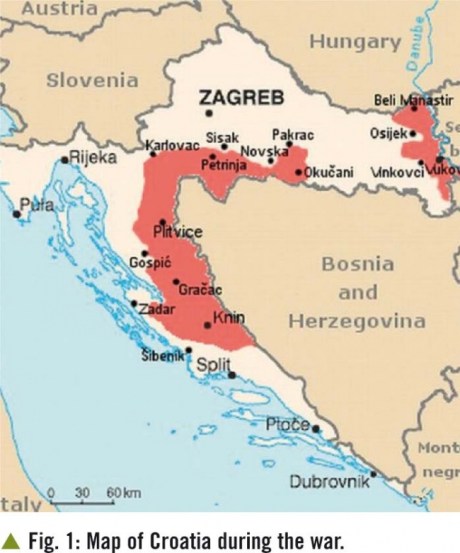
of non-Serbs areas of Croatia 1991 – 1995
Croatian authorities were determined to assert authority over their own territory, and used its resources to develop and equip its armed forces. In the summer of 1995, the Croatian military undertook two major offensives (Operations Flash and Storm) to regain (liberate) all but a pocket of its territory known as Eastern Slavonia. In a major self-imposed exodus of August 1995, tens of thousands of Serbs fled the Croatian advance to Serb-held areas in Bosnia and Herzegovina and further to Serbia. The war in Croatia effectively ended in Autumn of 1995. Croatia eventually re-asserted its authority over the entire territory, with Eastern Slavonia reverting to its rule in January 1998 following a peaceful transition under UN-administration.
A Brief Timeline of events 1989 – 1995 (1998)
1989 – June – 2,000,000 Serbs listen to Milosevic’s speech in Kosovo, where Milosevic threatened the other Yugoslav republics that “armed conflict” is not ruled out by Serbs to achieve their goals of the centralisation of Yugoslavia.
1990 – May – Serb-led Yugoslav People’s Army seize the arms caches of the Territorial Defenses of Croatia and Bosnia Herzegovina, redistributes arms to Serb “defense committees” and other paramilitary and terrorist groups – violence against Croats and other non-Serbs in mixed areas of Croatia increases, thousands flee to other regions of Croatia for safety.
1990 – June – Serbs in the Dalmatia and Lika declare the: Autonomous Municipalities of Northern Dalmatia and Lika” in Croatia.
1991 – March – Serbia declares the mobilisation of Serbian special forces, Slobodan Milosevic declares on television that “Yugoslavia does not exist anymore.”
1991 – March – Croatian police are ambushed in Plitvice Lakes Croatia, one police officer is killed – attacks against Croats in mixed Serb-Croat areas drastically increases – Serb police and Yugoslav People’s Army troops do nothing to prevent or prosecute it.
1991 – April – Serb terrorists disarm Croatian police in the town of Pakrac – the Yugoslav People’s Army, after distributing arms to Serbian terrorists there, moves in to Pakrac to “separate the warring factions,” essentially consolidating Serb territorial gains – Yugoslav People’s Army begins openly siding with the Serb terrorists in Croatia and ethnically cleansing non-Serbs and Croatia-loyal, democratic Serbs from areas that Serb ultra-nationalists claim to be part of “Greater Serbia.”
1991 – May – Ultra-nationalist Serbs hold a sham election in Croatia and declare union with Serbia.
1991 – May – In response to Serb attacks and the terrorist activities of ultra-nationalist Serbs, 86% of eligible Croatian citizens take part in a referendum on independence, with 94% favouring it.
1991 – June – Croatia declares independence from communist Yugoslavia immediately after Slovenia did the same.
1991 – August – The siege of the Croatian city of Vukovar begins as Serbian armed forces, along with the Serb-dominated Yugoslav People’s Army, begin an open scorched earth and ethnic cleansing policy in areas under their control, and begin savage attacks against free Croatian towns, villages and hamlets, in an attempt to cut Croatia off at four strategic points, and force Croatia to cede over 70% of its territory to Serbia.
1991 – November – The siege of Vukovar, which destroyed most of the city, ends – Serb forces massacre 261 hospital workers, and wounded soldiers taken from the hospital – Serb forces are filmed singing “Hey Slobo send us salad, there will be meat, we will slaughter the Croats” – no Western news agencies translated the song even after there was a complaint to BBC regarding this.
1992 – January – European Community peace negotiators are killed in Croatia after being attacked by a Serbian jet after a cease fire is declared between Croatia and Serbia and Croatian Serbs loyal to Milosevic’s regime in Croatia – Serbs violate the agreement and every subsequent agreement until Operation Storm by continuing ground, artillery and air attacks against Croatia – a total of 10,000 Croatian civilians were killed, 30,000 disabled (4,000 of them children) and almost 300,000 were ethnically cleansed with another 100,000 displaced by fleeing to areas out of Serb artillery and mortars. An additional 400 sick and elderly Croats were killed by Serb police, paramilitary and civilians in areas occupied by Serbian terrorists during the UN presence – not a single investigation was launched by Serb authorities. Croats are barred from returning, and Serbs repeatedly refuse peace negotiations that stipulate non-Serbs returning.
1995 – May – Operation Flash/The Croatian army captured the self-declared Serb enclave of Western Slavonia in its first major bid to retake territories occupied in 1991. In reply the Croatian rebel Serbs launched a rocket attack on Zagreb, the Croatian capital. Milan Martic, Croatian Serb leader of rebel Serb forces, ordered the shelling of Zagreb, killing six people and wounding many.
1995 – June – Srebrenica in Eastern Bosnia falls to Bosnian Serb and regular Serbian army forces – about 8,000 Bosniak (Muslim) men and boys are slaughtered.
1995 – August – Operation Storm/After over four years of endless Serb attacks, with Bihac on the verge of becoming the next Srebrenica, Croatia began this liberation campaign of the Serb self-proclaimed “Krajina” region of Croatia (the US takes action and provides intelligence to Croatian Army as Serb aggression is obvious beyond a shadow of a doubt). This liberating offensive captured in days a region that Serb rebels had held for 4 years. Most of this Serb-occupied area was taken in a 3-day offensive.
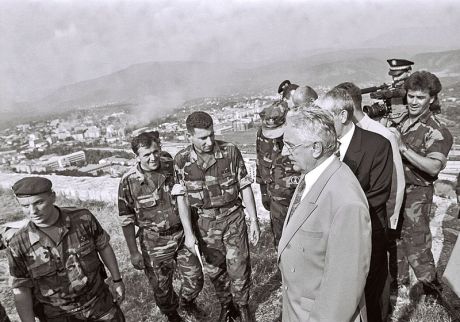
1998 – January – Eastern Slavonia part of Croatia was peacefully reintegrated into Croatia.
From the time of this reintegration Croatia has been faced with a different kind of war – the transition into democracy from the communist Yugoslavia totalitarian regime. Battles are and have been many in this sphere, often strewn with misinformation and anti-Croatian propaganda within Croatia and internationally. The future – self-determination, democracy and freedom – that Croatians defended at overwhelming costs to human life and living during the 1990’s war has not yet arrived. With truth and justice gaining their rightful place it will arrive eventually but not without determined pursuits of both, by all who truly want it.


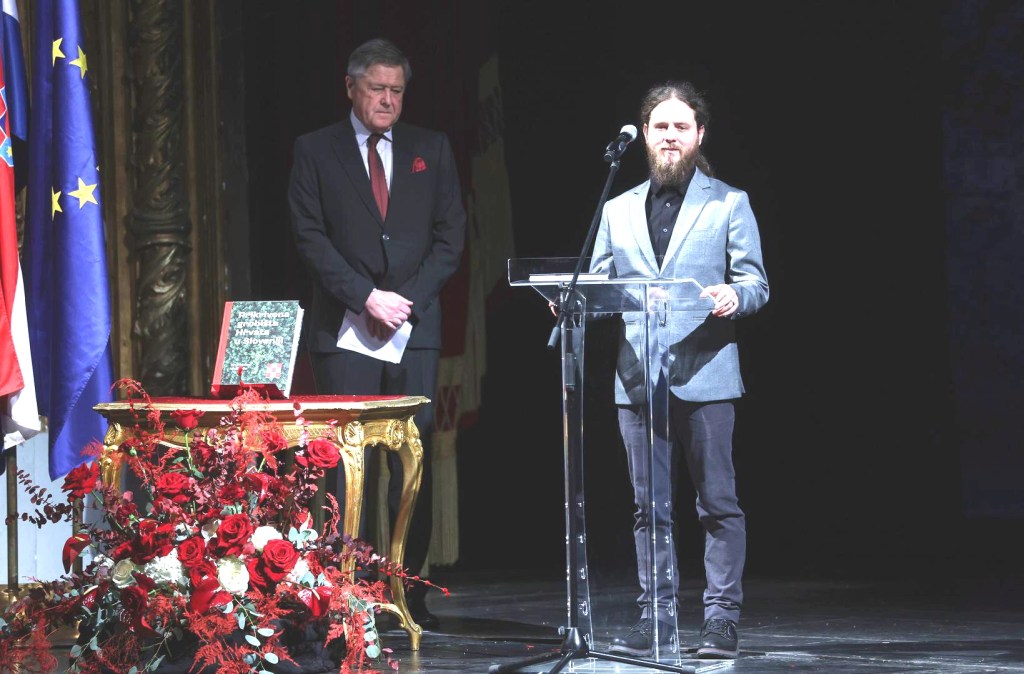
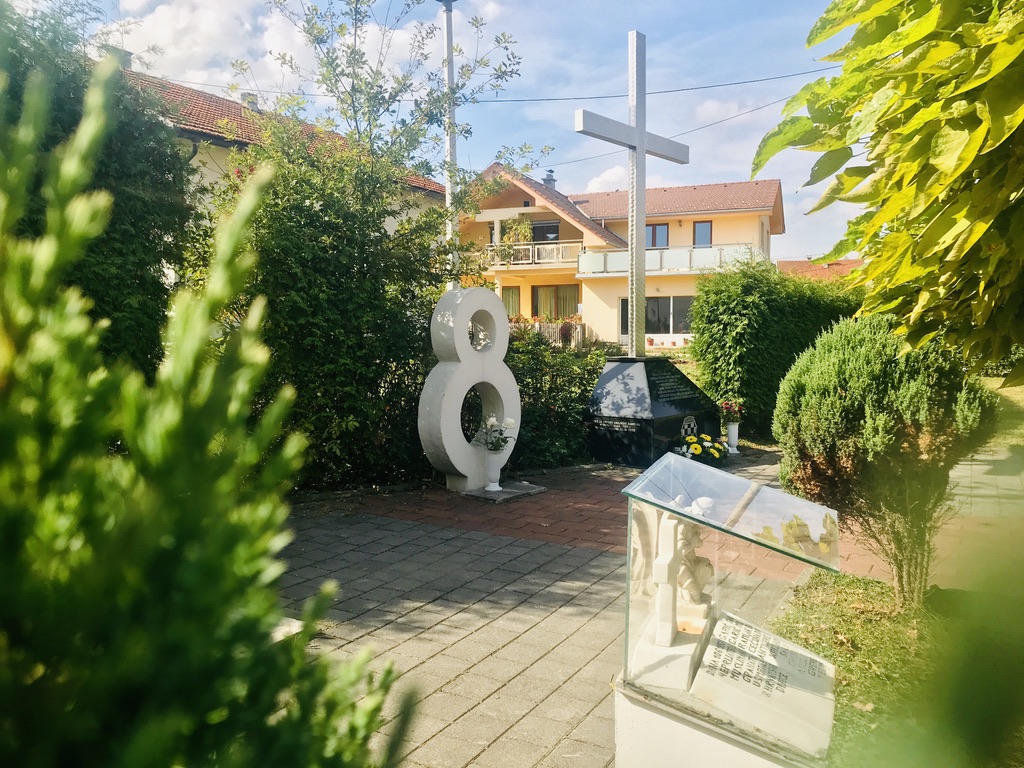
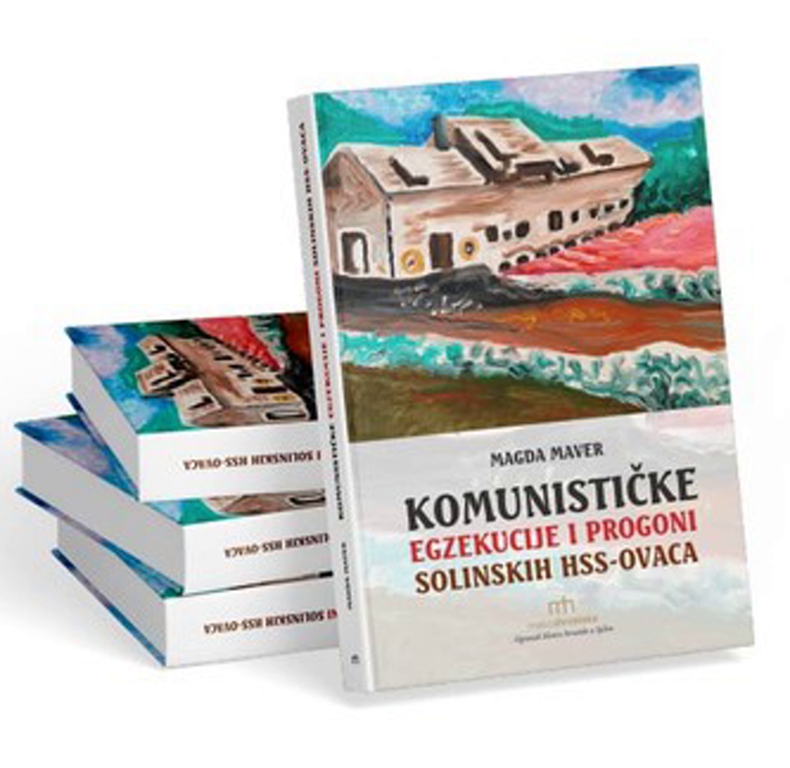

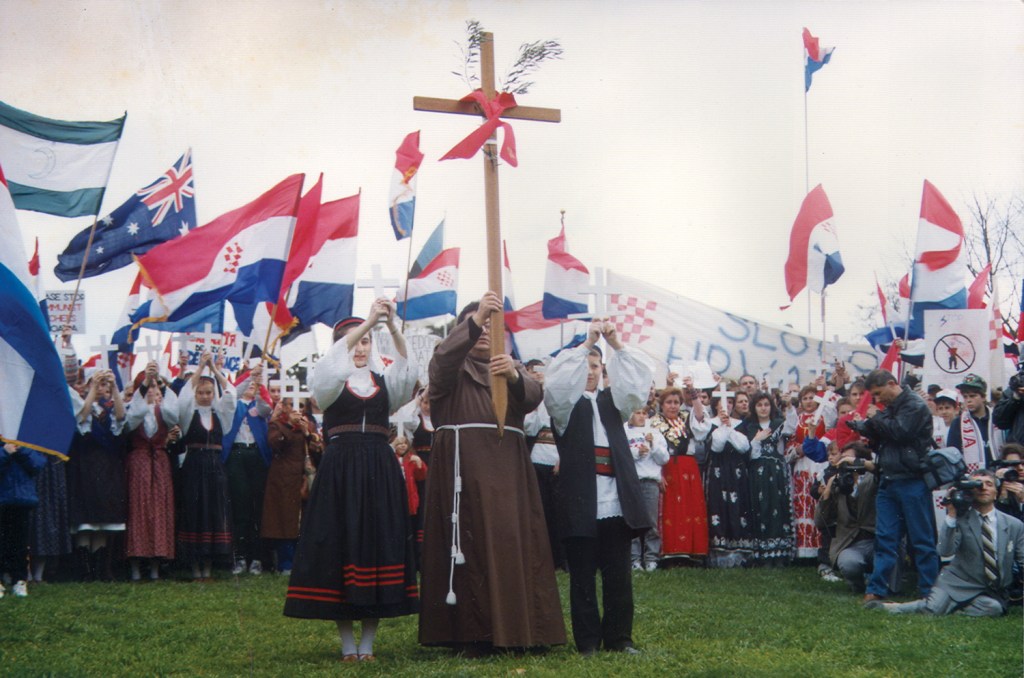

Leave a reply to inavukic Cancel reply